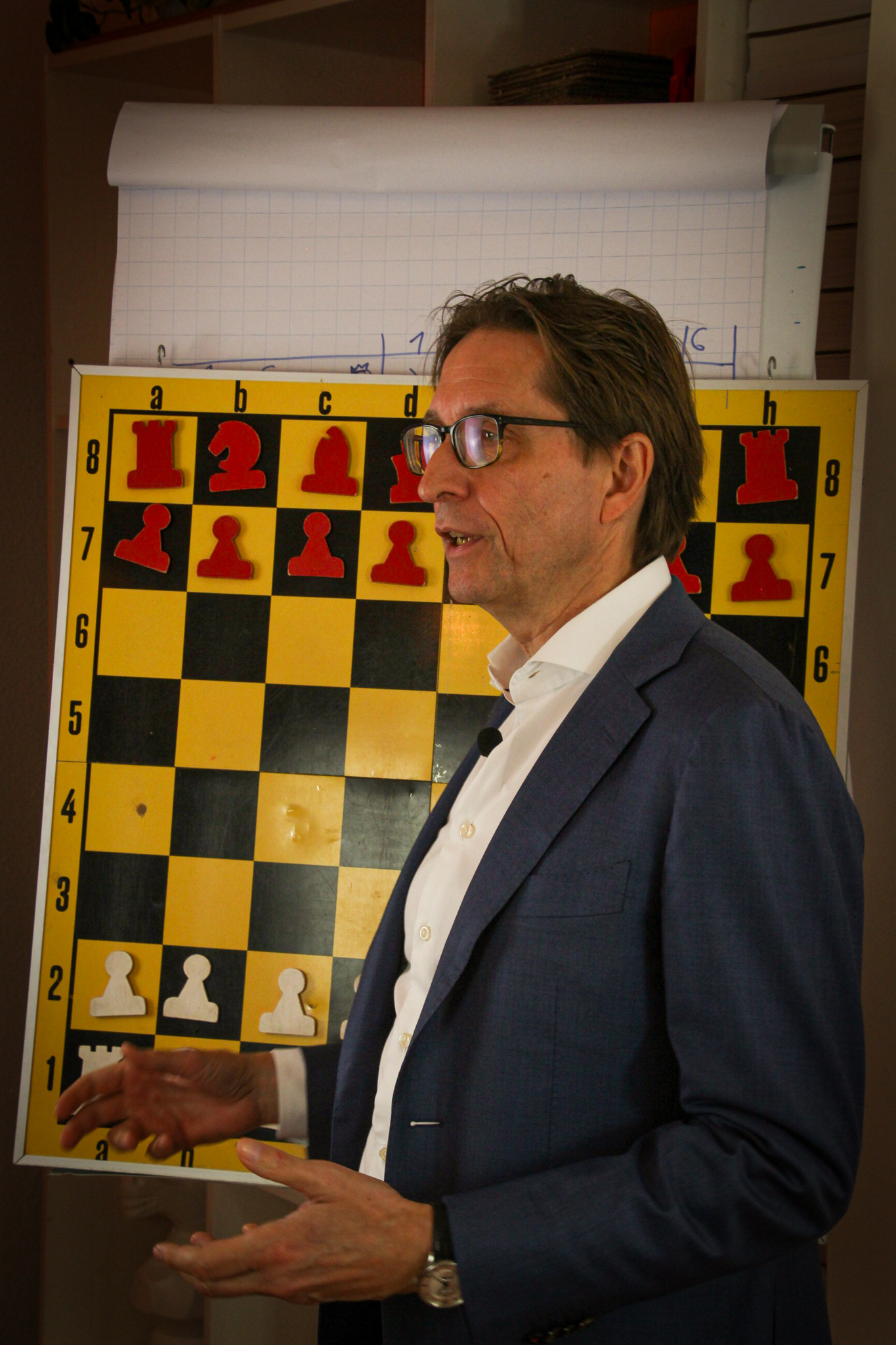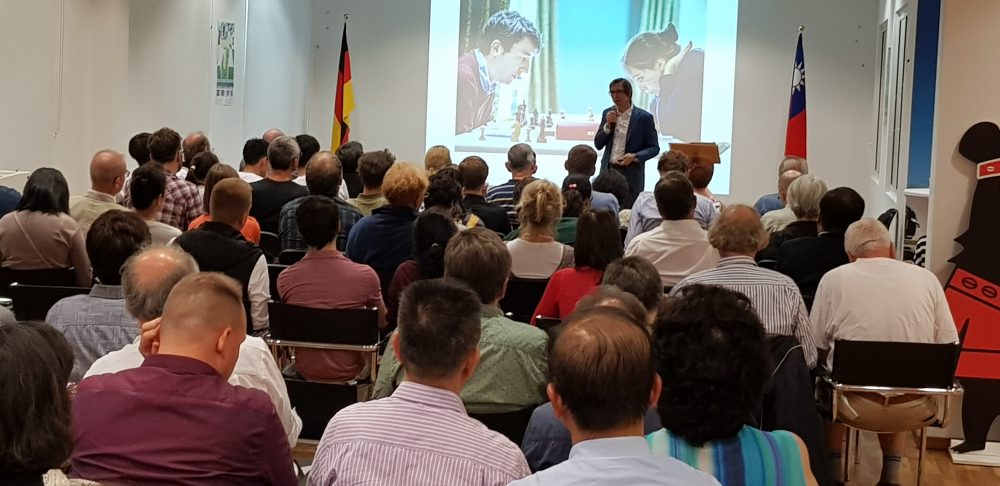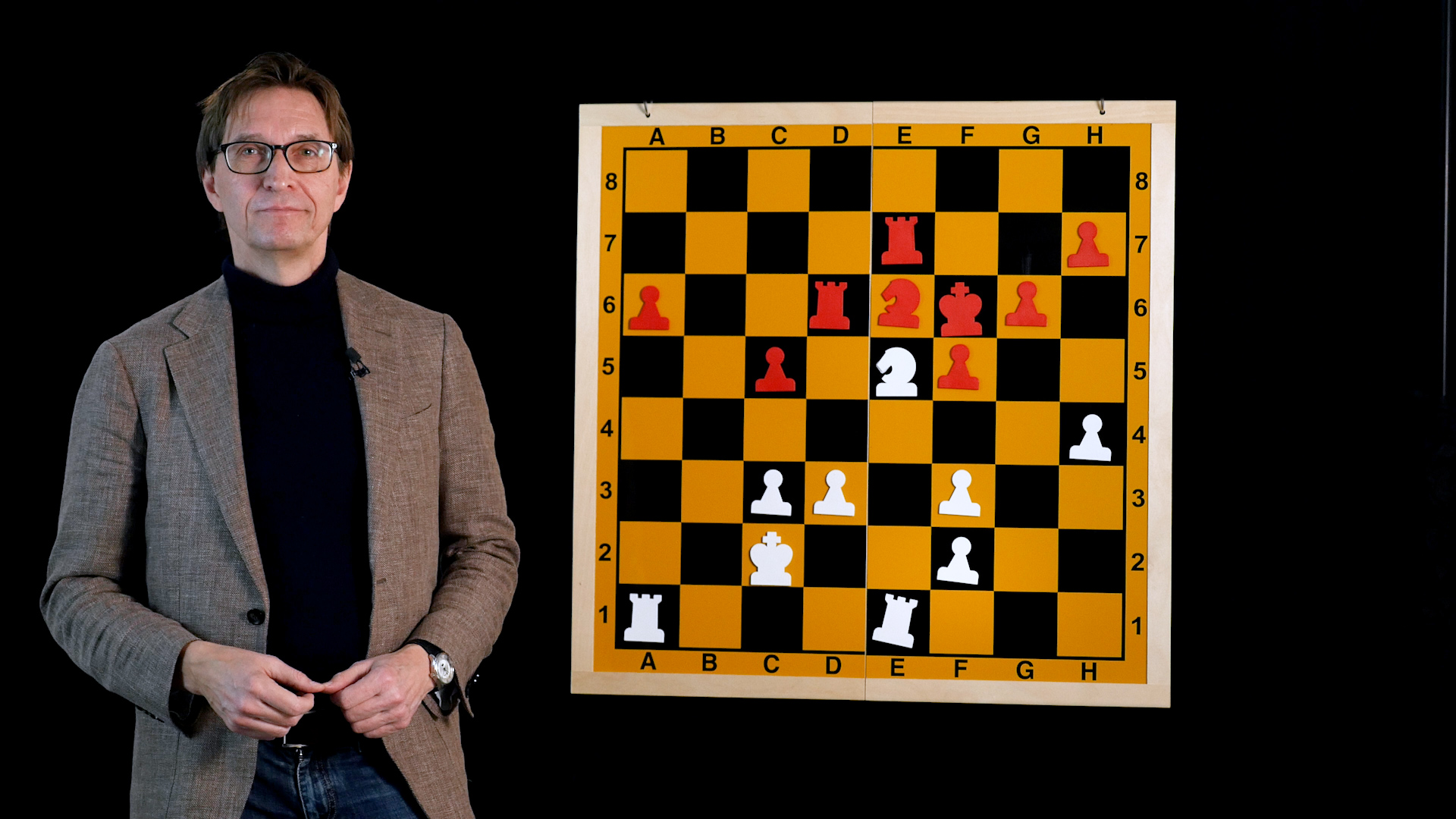Keynote speeches: intuition and decision-making in the digital age
Stefan Kindermann is a distinguished and experienced keynote speaker who enjoys being booked by companies that want to underline their strategic direction. Also as a refreshing “look beyond the box” at symposia, the topics of the king´s plan are ideal.
 “Intelligent Intuition – Human Trump in the Digital Age”
“Intelligent Intuition – Human Trump in the Digital Age”
The ideal way to optimal decisions in critical moments and to creative solutions
All developments indicate that strategic-structural plans and processes are increasingly being adopted by sophisticated artificial intelligence.
What will the role of man look like then? Where are his true strengths and his unique selling point? How do critical decisions succeed in an increasingly complex environment?
Chess grandmaster Stefan Kindermann gives a lecture on these topics in a way that is as vivid as it is convincing:
- What does intuition mean?
- How can we better understand, strengthen and develop our intuition?
- In which areas is intuition suspicious?
- How do we protect ourselves from intuitive mistakes?
- How do you combine rationality and intuition in the planning and decision-making process?
- How can we convincingly communicate our intuition?
Keynote Contents:
Always One Step Ahead! Thematic focal points of the lecture:
- The Mystery of Origin – Survival Strategies for Maharajahs
- Power for entrepreneurs – how strong chess players use their thinking in business
- From the drama of the professional coachs – in the head of the grandmaster
- Combining your gut instinct and your intellect optimally – this is how you stimulate your intuition and protect yourself from spontaneous misjudgements
- Masterly decisions under time pressure and stress
- Courageously acting in the light of uncertainty
- The dance with the black swan – react flexibly to dramatic changes
- See through the eyes of the other – the power of change of perspective
- Proper handling of setbacks and successes as a powerful engine of further development
- Thus, managers and decision-makers benefit from the strategies of the chess grandmaster – the model king plan of chess grandmaster Stefan Kindermann and Prof. Robert von Weizsäcker
Keynote Speaker Stefan Kindernmann



What can analysts in business and politics learn from chess? Chess event with Stefan Kindermann at the Taiwanese Embassy in Berlin (Photo: Michaela Kindermann)
 The dance with the black swan
The dance with the black swan
Dealing with surprising events and what we can learn from chess masters.
The art of decision making
Chess grandmasters must constantly make complex decisions under time pressure and stress.
This can only be achieved by combining clear, rational planning structures with a highly developed gut feeling.
From the inner attitude, it is always courage to decide in the light of uncertainty that allows navigating on an immense ocean of possibilities.
This keynote speech shows concretely how the best approaches of the chess grandmasters can be used for planning and decision-making in management.

On dealing with surprising events and what we can learn from chess masters. 
In an increasingly complex and dynamic world, we are too often confronted with surprising and unforeseen events that fundamentally change the overall situation. Admittedly corresponds Karl Popper’s often quoted, beautiful metaphor the “black swan” to an “unpredictable event”, which today is often confused with an “unforeseen event”. But in any case, the practical question remains as to how we can best deal with extreme upheavals and prepare for them in advance. Especially in this area, much can be learned from the thinking and mental strategies of the chess grandmasters for management practice.
The power of the change of perspective 
A very special “master tool”, not only for creative problem solving, but above all for successful interaction with other people, is the targeted change of perspective. Only if I succeed in putting myself in other people’s shoes and understanding their motives and values, I can include their likely behavior in my planning. If I do not succeed in doing this, all planning involving other people will come to nothing.
Precisely this is trained as a matter of course in the thinking of chess masters. At every change of move, I must succeed in seeing the world through the eyes of the other person(s) and find their best options.
Here we are at an important intersection between ratio and intuition, because in a systematic-rational way I can gather information about other people or organizations, but to really understand their true desires and values, I need the power of my intuition.

